Here are some questions commonly posed by elders and their caregivers:
 I am having trouble going up and down stairs in my house, do I need to move?
I am having trouble going up and down stairs in my house, do I need to move?
 How do I get safety modifications for my bathroom?
How do I get safety modifications for my bathroom?
 I am considering moving to a retirement community, but how can I find something that is affordable?
I am considering moving to a retirement community, but how can I find something that is affordable?
 Is there such a thing as a "good" nursing home if my parent needs that level of care?
Is there such a thing as a "good" nursing home if my parent needs that level of care?
Resources are available to assist elders either to remain in their homes or select other housing options. This section includes information that can help you make the decision about aging at home to learn about other available housing options.

There are a number of issues that caregivers must consider and solve when deciding whether an elder can remain in his or her own home. Section 3 addresses many issues related to setting up supportive home care services. In this section, the focus is on the physical set up of the home and how to make sure it is a safe environment.

There are many adaptations to homes that can make it easier and safer to carry out activities such as bathing, cooking, and climbing stairs as well as alterations to the physical structure of the home to improve its overall safety and condition. Research suggests that one-third to one-half of home accidents, such as falls, can be prevented by modification and repair.
To help you determine what modifications may be needed there is a useful home safety
checklist at Elder Care > Care At Home > Home Safety for Your Aging Parent. 
For assistance with home modifications, you can also contact your Council on Aging, or ASAP/AAA.


Assistive technology refers to a device or service used
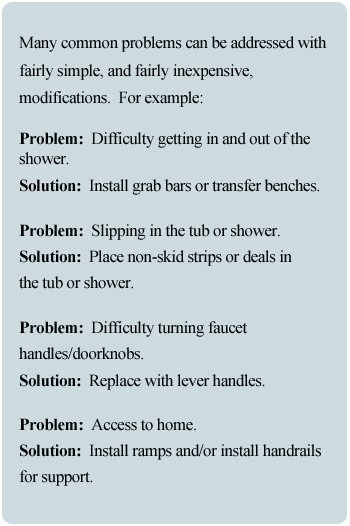 to improve or maintain the mobility of an individual with disabilities. Assistive technology service providers can help in selecting, designing, and customizing the aiding devices for each individual. Mobile devices include walkers, wheel chairs, and mopeds, while stationary technology can include elevators, stairway chair lifts, and vehicle lifts.
to improve or maintain the mobility of an individual with disabilities. Assistive technology service providers can help in selecting, designing, and customizing the aiding devices for each individual. Mobile devices include walkers, wheel chairs, and mopeds, while stationary technology can include elevators, stairway chair lifts, and vehicle lifts.
Assistive Technology is also important for caregivers. Caring for an elder often requires physical demands that can strain caregivers, jeopardizing their own health, strength, and energy level. Home modifications (e.g., portable ramps, roll-in showers, widened doorways) and assistive devices can provide immediate relief and enhance the ability of caregivers to deliver care with less stress. Although often overlooked in discussions of support for caregivers, the home environment is a critical component that significantly impacts the capacities of caregivers and service agencies to provide assistance. CARES (Caregiver Adaptations to Reduce Environmental Stress), funded by the U.S. Administration on Aging, is one of the best resources for current information on this topic. Call 213-740-1364 or email: cares@csu.edu.


Once the decisions are made about the kinds of modifications that are needed, the question of financing arises. Some help is available for low to moderate income elders from several organizations in Massachusetts.
Home Modification Loan Program of the MA Department of Health and Human Services provides loans to finance eligible modifications including ramps, accessible bathrooms, grab bars, visual safety alarm systems, etc. See MA State Dept. > Housing > Home Modification Loan Program, or call 617-204-3637.
Home Options for Mass. Elders is a housing counseling agency that
assists low and moderate income homeowners (age 60 years and over) to remain in their homes and protect their equity by offering home repair services. On the web, go to Home-MA-ASAP or call 617-451-0680, or 800-583-5337 toll-free.
Metropolitan Boston Housing Partnership (MBHP) is a regional housing agency
that provides loans to make access modifications to homes of elders, adults with disabilities, and families
with children with disabilities. Loans from $1,000 up to $25,000 are provided based on income eligibility.
See: Metropolitan Boston Housing Partnership
> Real Estate Services > Home Modification Loan Program, or call 617-425-6637, or 1-800-272-0990, ext. 637,
toll-free.
United Way of Central Mass, in partnership with AFL/CIO, organizes union member volunteers to assist with building handicap ramps for elder and disabled homeowners. Assistance is not provided for rental properties. Go to: United Way of Central Mass > How to Help > Labor Services > Handicap Ramp Program, or call 508-757-5632.
If an elder does not qualify for the financing options described above, but cannot pay for needed home improvements or repairs, one option to consider is a reverse mortgage. Many elders find that their home is their major asset and think they can only access the value by selling it. A reverse mortgage is a special type of home loan that lets the homeowner convert a portion of the equity in his or her home into cash. (For more information on reverse mortgages, Financial Planning, Section 2, Part 1.

Massachusetts has a number of energy assistance programs, including laws that prevent utility companies from shutting off service to senior households that are experiencing a financial hardship. Many utility companies offer reduced rates for people who qualify. Information about obtaining Fuel and Utility assistance can be obtained from MassResources.org > Energy Assistance.


"Aging in Place" is the term of art for
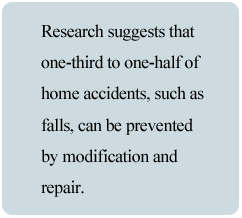 remaining in your own home. The traditional approach to realizing this goal is the delivery of home care services based on an individual assessment and development of an individual care plan. Section 3, under "Home Care".)
remaining in your own home. The traditional approach to realizing this goal is the delivery of home care services based on an individual assessment and development of an individual care plan. Section 3, under "Home Care".)
More recently, a different approach is being tried through the creation of "naturally occurring retirement communities" or "NORCs." This approach has received support from federal agencies, such as the U.S. Department of Health and Human Services and National Institute on Aging, and is now starting to take hold as an option for seniors in Massachusetts.

A NORC refers to a group of people who live in a geographic area where a significant number of residents are 60 and over, but where people of many different ages live. The NORC connects elders to a variety of supportive services and to each other, often using computer technology as a key tool. A service delivery model that targets NORCs is designed to meet the needs of a large group of older people in a community so more of them are able to maintain their independence and continue living at home and in their neighborhood and community. It also allows economies of scale or scope in the organization and delivery of services.
There are a small number of NORC's in Massachusetts at this time.
 Jewish Family and Children's Services In 2004, Jewish Family and Children's Services was awarded a grant from the U.S. Administration on Aging to bring services to areas that have high concentrations of elders with the goal of helping them to remain independent by building a self-sufficient community. JF&CS has chosen three sites to begin this program: Brookline, Malden and Swampscott (the Swampscott project is managed by JFC of North Shore.)
Jewish Family and Children's Services In 2004, Jewish Family and Children's Services was awarded a grant from the U.S. Administration on Aging to bring services to areas that have high concentrations of elders with the goal of helping them to remain independent by building a self-sufficient community. JF&CS has chosen three sites to begin this program: Brookline, Malden and Swampscott (the Swampscott project is managed by JFC of North Shore.)
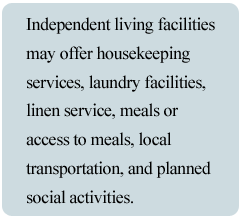
The services and programming are designed to meet the needs articulated by the seniors who live there. Each participating senior receives an individually-tailored mix of services, which may include: care planning and case management; medical services; rehabilitative therapy; fitness instruction; mental-health counseling; personal care; and social activities such as events, trips and classes. For more information on the Malden and Brookline NORCs, call 781-647-5347.
 Beacon Hill Village (BHV) is a grassroots membership organization that helps people age 50 and older who live in the Beacon Hill, Back Bay and West End neighborhoods of Boston to enjoy safer, healthier and more independent lives in their own homes. By partnering with proven providers of services, BHV offers its members preferred access to social and cultural activities, exercise opportunities and household and home maintenance services, as well as medical care and assisted living at home.
Beacon Hill Village (BHV) is a grassroots membership organization that helps people age 50 and older who live in the Beacon Hill, Back Bay and West End neighborhoods of Boston to enjoy safer, healthier and more independent lives in their own homes. By partnering with proven providers of services, BHV offers its members preferred access to social and cultural activities, exercise opportunities and household and home maintenance services, as well as medical care and assisted living at home.
Caregivers and elders interested in learning how to start an organization similar to Beacon Hill Village in their own neighborhood, can order a copy of BHV's "The Village Concept: A Founder's Manual." Beacon Hill Village. 


This section provides some basic information about the different types of senior housing available in Massachusetts, and what to expect in terms of costs associated with each type. Your local ASAP, COA, or public housing agency will have information about the options best suited for a given elderly individual. For most senior housing options you will want, or need, the assistance of a case worker from one of these agencies to complete the application process.
Outlined below are descriptions of the different types of elder housing options, followed by a list of housing resources available in Massachusetts.

Often referred to as Retirement Communities, Congregate Living or Senior Apartments, these facilities are designed for seniors who are able to live on their own, but desire the security and conveniences of community living. Some facilities offer organized social and recreational programs as a part of everyday activities (Congregate Living or Retirement Communities), while others provide housing with only a minimal amount of amenities or services (Senior Apartments).
Independent living facilities may offer housekeeping services, laundry facilities, linen service, meals or access to meals, local transportation, and planned social activities. Most facilities also provide at least one group activity per day. Some facilities offer recreational activities which may include swimming pool/spas, exercise facilities, community lounges, and reading rooms. Health care is not provided, but many facilities allow a home health aide or nurse to come into an apartment to assist with medicines and personal care. Because these facilities are not licensed by local, state or federal agencies, there is no formal regulation.
Financial Considerations: Private funds are most often used to pay for independent living, although some senior apartments are subsidized and accept federally funded vouchers to cover a portion of the payment. Medicare and Medicaid do not cover payment since no healthcare is provided.


Assisted living provides a combination of residential housing, personalized supportive services and healthcare, but it does not provide skilled nursing care. Assisted living is intended for adults who may require help with activities of daily living such as housecleaning, meals, bathing, dressing and/or medication reminders, and who would like the security of having assistance available on a 24 hour basis in a residential environment. The underlying philosophy of assisted living is to enhance the autonomy, privacy and individuality of elders.
Assisted living residences are regulated and licensed at the state level. The Office of Elder Affairs certifies assisted living residences in Massachusetts and offers the Assisted Living Ombudsman Program to provide advocacy, information and complaint resolution to consumers.
Financial Considerations: The cost of assisted living varies according to the location, the size of the apartment, the services included, and whether the unit is owned or rented. The monthly fee in Massachusetts is typically $3,000 or more. The majority of assisted living residents pay privately, but there are a few ways to receive third party assistance:
Group Adult Foster Care - This program, funded by Medicaid, pays for the service component of assisted living, (about $1,000 a month). For a list of residences that participate in the GAFC program call Elder Affairs' Information and Resources unit at 1-800-243-4636.
ElderCHOICE - a MassHousing program that provides reduced rates for assisted living. Inquire as to whether the particular residence you are considering offers reduced rates. Residences are listed at ElderCHOICE, or call 617-354-4899 for information.

Some assisted living facilities and nursing homes offer specialized care to people
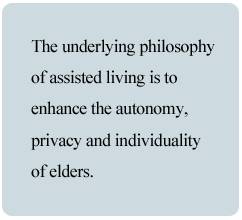 with Alzheimer's disease and other related memory disorders or dementia. There is also a growing trend towards facilities that provide specialized care and housing tailored to the special needs of individuals with this disease. These facilities offer care that fosters residents' individual skills and interests in an environment that helps to diminish confusion and agitation.
with Alzheimer's disease and other related memory disorders or dementia. There is also a growing trend towards facilities that provide specialized care and housing tailored to the special needs of individuals with this disease. These facilities offer care that fosters residents' individual skills and interests in an environment that helps to diminish confusion and agitation.
Similar to assisted living communities, specialized care facilities provide assistance with dressing, grooming, bathing, and other daily activities. Meals, laundry and housekeeping are usually provided within private and semi-private rooms in a residential type setting. Your local ASAP can help you identify facilities in your area that offer these types of services.
Financial Considerations: Similar costs and opportunities for third party assistance apply for these facilities as for other assisted living facilities and nursing homes.


This initiative was developed by the Massachusetts Executive Office of Elder Affairs (Elder Affairs)
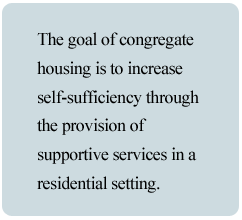 and the Department of Housing and Community Development (DHCD) to create an "assisted living like" environment in state-funded elderly/disabled housing. This program was first implemented on a pilot basis in 1999 at three elder housing developments. It has since been expanded to 22 locations. By pooling resources invested by an Aging Service Access Point (ASAP) and a housing authority in an existing development, frail, low-income elders have an opportunity to access a model of affordable supportive housing that promotes independence and aging in place. As in a traditional assisted living residence, services are offered on an as needed basis, 24 hours per day.
and the Department of Housing and Community Development (DHCD) to create an "assisted living like" environment in state-funded elderly/disabled housing. This program was first implemented on a pilot basis in 1999 at three elder housing developments. It has since been expanded to 22 locations. By pooling resources invested by an Aging Service Access Point (ASAP) and a housing authority in an existing development, frail, low-income elders have an opportunity to access a model of affordable supportive housing that promotes independence and aging in place. As in a traditional assisted living residence, services are offered on an as needed basis, 24 hours per day.
Financial Considerations: Residents who are eligible for the state's
subsidized Home Care Program receive all or some of the services at no additional cost. Services include case management, 24- hour personal care/on-site, an on-call person, housekeeping services and laundry, medication reminders, social activities, and at least one meal per day. Residents who do not qualify for state funded home care services based on their frailty level and income are able to privately purchase the entire package of supportive services or some of the services based on their need.

This is a shared living environment designed to integrate the housing and services needs of elders and younger disabled individuals. The goal of congregate housing is to increase self-sufficiency through the provision of supportive services in a residential setting. Congregate Housing is neither a nursing home nor a medical care facility. It does not offer 24-hour care and supervision. Services are made available to aid residents in managing Activities of Daily Living in a supportive, but not custodial environment. Each resident has a private bedroom, but shares one or more of the following: kitchen facilities, dining facilities, and/or bathing facilities. Throughout the state there are many variations in size and design.
Financial Considerations: This type of housing is entirely subsidized. Eligibility for the congregate housing program requires a person to apply to the local housing authority, be at least 60 years of age or disabled, and meet the financial eligibility guidelines. Individuals may or may not have a physical and/or cognitive disability, but can participate in a shared living environment.


CCRCs provide the services necessary for residents to remain in the same retirement community when their personal and health care needs change. CCRCs typically combine three housing options on one campus:
 Townhouses, apartments or cottages for totally independent living,
Townhouses, apartments or cottages for totally independent living,
 Assisted living apartments for elders who need some personal care assistance, and
Assisted living apartments for elders who need some personal care assistance, and
 Nursing home accommodations for elders who require more comprehensive care.
Nursing home accommodations for elders who require more comprehensive care.
CCRCs provide or make available, usually for a set monthly fee ranging from $700 to $3,000 per month, some combination of the services, activities, and amenities. The composition of service packages, especially the healthcare component, varies greatly by CCRC. It is important to be clear about which services are included in the monthly fee and which are available at an additional cost. Most CCRCs also require a sizable entrance fee, ranging from less than $100,000 to more than $300,000.
In terms of licensing and regulation, CCRC units follow the same rules as freestanding facilities. Independent living units are not licensed, the assisted living units are licensed and regulated by the state, and the nursing facilities are licensed and regulated by both the state and the federal government.
The Executive Office of Elder Affairs maintains a list of CCRCs in Massachusetts that includes their location, the number of units, and a contact telephone number for each facility. If you have any questions about CCRCs, call Elder Affairs at 617-727-7750, (800) AGE-INFO (800-243-4636), or TTY/TTD 800-872-0166.
Financial Considerations: Units in a CCRC may be rented or owned, but all are almost always paid for with private funds. Investing in a continuing care community requires a substantial monetary commitment. Therefore, you might want to have a trusted financial advisor examine your personal financial situation to make sure you can afford the facility.
Some CCRCs in other states have had significant financial problems that have created hardship among their residents. The risks involved for both the consumer and the provider need to be explored. Massachusetts law requires CCRCs to disclose in writing certain information to prospective residents before the contract is signed or any money is given to the CCRC. The public can review this information at Elder Affairs office at 1 Ashburton Place, 5th Floor, Boston MA. The Better Business Bureau may also be able to tell you if any complaints have been filed against a CCRC that you are considering.


Nursing Homes are licensed by the state and provide 24-hour care. There are three general types of facilities that fall under this description, offering different levels of care, but they are also referred to generally as nursing homes. A determination of need for long-term care in a nursing facility is made in conjunction with the elder's personal care physician and your local ASAP Coordination of Care Unit.
 A Residential Care Facility or Rest Home provides 24-hour supervision and supportive services for individuals who do not routinely need nursing or medical care.
A Residential Care Facility or Rest Home provides 24-hour supervision and supportive services for individuals who do not routinely need nursing or medical care.
 A Nursing Facility is a residential facility providing 24-hour nursing care, rehabilitation services and activities of daily living to the chronically ill who require nursing care.
A Nursing Facility is a residential facility providing 24-hour nursing care, rehabilitation services and activities of daily living to the chronically ill who require nursing care.
 A Skilled Nursing Facility provides 24-hour skilled nursing care and extensive rehabilitative care and services to the chronically ill, as well as short-term care for individuals who have been hospitalized and need rehabilitation before returning home, or specialty care for individuals with physical and neurological disabilities. Facilities provide room and board, personal care, protection supervision, and may offer other types of therapy.
A Skilled Nursing Facility provides 24-hour skilled nursing care and extensive rehabilitative care and services to the chronically ill, as well as short-term care for individuals who have been hospitalized and need rehabilitation before returning home, or specialty care for individuals with physical and neurological disabilities. Facilities provide room and board, personal care, protection supervision, and may offer other types of therapy.
Nursing Homes are licensed and regulated by MA Department of Public Health and are individually certified by the state for Medicare and Medicaid. They offer a staff of licensed and/or registered nurses, nursing aides, and administrators as required by licensing standards. The health care is supervised and authorized by a physician. They must also meet federal requirements. You can look at the facility's Nursing Home Report Card by calling the MA Department of Public Health at 617-753-8118 or by visiting their web site at www.Mass.Gov. You can also request a copy of "A Consumer's Guide to Nursing and Rest Homes" by calling Elder Affairs at 800-AGE-INFO. 
Financial Considerations: Nursing Homes charge a basic daily or monthly fee an average fee in Massachusetts is $7,750/month. Some families purchase long-term care insurance in anticipation of the cost, while others must depend on other forms of financing. Facilities accept a variety of Medicare, Medicaid and private insurance carriers. Medicaid currently pays for 60% of nursing home care; a resident's assets affect the level of payment. Medicare pays for nursing home care if it follows with 30 days of a hospitalization of three or more days and is medically certified. The Nursing Home will ask you for financial information in order to determine the appropriate payment source and amount.
WHAT YOU NEED TO KNOW:
1. The individual, and his or her spouse, are responsible for most of the cost of a long-term care facility.
2. Neither private health insurance nor Medicare cover long-term care in a nursing facility.
Medicaid, called MassHealth in Massachusetts, might cover the cost. To qualify for MassHealth the individual
must have very low income and limited assets (maybe because he or she has spent significant assets on nursing
facility costs). There are also other eligibility rules for MassHealth, and MassHealth must determine that
the individuals needs justify this level of care.
PLANNING AHEAD
While your loved one is still healthy, is the time to consider long-term care insurance.
These policies vary widely, and arent appropriate for everyone, but now is the time to investigate.
Policies also increasingly offer the option of extensive in-home services that might allow your loved-one
to remain at home.
These are very simplified explanations. Talk with your social worker
or a qualified elder law attorney about your specific situation. For a referral to an elder law attorney
contact the "National Academy Of Elder Law Attorneys" [www.naela.org], at (520) 881-4005 or online at National Academy of Elder Law Attorneys, Inc.
--Massachusetts General Hospital Social Service Department

Soldiers' Homes provide health care services to Massachusetts' honorably discharged wartime veterans with non-service connected health problems. The Soldier's Home is a state-funded, fully accredited health care complex that offers veterans quality hospital care, skilled nursing and long term care, full-time residential accommodations, and a multi-service outpatient department.
There are two Soldiers' Homes in Massachusetts one in Holyoke and one in Chelsea. For Holyoke, call 413-532-9475 or go to www.Mass.Gov-Holyoke. For Chelsea, call 617-884-5660 or go to www.Mass.Gov-Chelsea. The Soldier's Home in Chelsea is accredited by the Joint Commission on Health Care Organizations and is approved by the Federal Department of Veterans Affairs and Medicare.
Financial Considerations: This type of elder housing is subsidized for eligible veterans who meet income requirements. Charges apply for those who have a gross monthly income over $300.


CJP Senior Direct: This website contains information about Continuing Care Retirement Communities, independent senior housing, Kosher and non-Kosher Assisted Living and Rehabilitation/Skilled Nursing Facilities provided by the Jewish community. Although primarily focused on the greater Boston region, there are also listings in central and western Massachusetts. Housing availability is non-denominational. CJP Senior Direct.org > Greater Boston Resources > Senior Housing Options, or call 800-980-1982 (Monday-Friday 9AM-5PM).
Hebrew Senior Life develops and provides community-based housing, long and short-term care, community-based services, assisted living, adult day health, and a continuing care retirement community to enable seniors to live independently in the community as long as possible. The website provides useful information. Hebrew Senior Life > housing options, or call 617-363-8000.
Housing Works is a searchable internet database inventory of public, affordable, subsidized, and special needs housing throughout Massachusetts. Applications for housing can be completed and submitted either online or by printing the application from the website, HousingWorks.net > Enter Housing Works> Housing, or call 617-504-0577. E-mail: support@housingworks.net.
Lutheran Social Services of New England provides links to a range of senior housing options sponsored by the Lutheran faith throughout New England. Housing is provided on a non-denominational basis. See Lutheran Social Services of New England > Services > Older adults, or call 781-997-0814.
Massachusetts Assisted Living Facilities Association (Mass ALFA) has extensive information about assisted living, as well as a detailed listing of residences throughout New England. They also provide publications that can be downloaded or ordered free of charge from their website Massachusetts Assisted Living Facilities Association > Resource Guide and Consumer Guide, or call 781-622-5999.
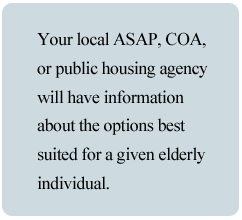
Massachusetts Aging Services Association (MASA) is an association of non-profit organizations providing a range of elder housing and care services. The website has a searchable database on non-profit providers of housing and services. It can be searched by community and type of service desired at Massachusetts Aging Services Association (MASA) > Consumers > Type of Services Available. Or call 617-244-2999, or e-mail office@MassAging.org.
Massachusetts Dept. of Housing and Community Development (DHCD) has an informative website on public housing options and how to find more information in your area. Go to: Massachusetts Dept. of Housing and Community Development (DHCD), or call 617-573-1100.
Massachusetts Extended Care Federation (MECF) provides extensive information on their consumer website on types of housing, from home care to assisted living, to nursing home care as well as listings of facilities in Massachusetts. Call 617-558-0202 or go to Massachusetts Extended Care Federation (MECF) (DHCD).
Massachusetts Executive Office of Elder Affairs offers lists of licensed senior housing in the state and other information. For more information on how to choose the right assisted living residence, you may call Elder Affairs at 617-727-7750 or 1-800-AGE- INFO (1-800-243-4636) for a free copy of "Assisted Living in Massachusetts: A Consumer's Guide." Or go to: www.mass.gov) Residents > Elders > Housing, for more information.
Mass Access: The Accessible Housing Registry is a free resource that helps people with disabilities find rental housing in Massachusetts, primarily accessible and barrier-free housing. The Registry is prepared by Mass Network of Information Providers for People with Disabilities (MNIP-Net). Call 1-800-466-3111, or Mass Access: The Accessible Housing Registry .
MassResources.Org is a website that provides detailed information about the many types of assistance available to those in need living in Massachusetts. It offers Eligibility Checks which make it possible to determine if you appear to be eligible for specific benefit programs. Go to: MassResources.Org
Metropolitan Boston Housing Partnership (MBHP) is the state's largest provider
of rental voucher housing assistance, serving elderly, disabled, low-income working individuals and families,
and homeless people in Boston and 29 surrounding communities. This website has a listing of affordable
apartments. Go to: Metropolitan Boston Housing Partnership (MBHP)
> tenants, or call 800-272-0990, ext. 700, toll free, or 617-425-6700, or e-mail at info@mbhp.org.

Nuestra Communidad Housing Resource Services Program provides outreach, information and assistance, advocacy and placement services to homeless elders, at-risk elders an dgrandparents raising grandchildren. Call 617-427-3599, or go to NUESTRA CDC.org
Public Housing Authority listings by Massachusetts city and town can be found at the US Dept of Housing and Urban Development (HUD) Website: Public Housing Authority.
Senior Housing resource for researching senior housing on the internet. Website: Senior Housing Directory.


Consumer's Guide to Assisted Living and Residential Care prepared by the National Center for Assisted Living (NCAL). It has a list of useful questions to ask when visiting assisted living facilities as a prospective resident, and an "Assisted Living Cost Calculator Worksheet." To request a copy by phone, call 1-800-628-8140, or National Center for Assisted Living (NCAL). 
Senior Housing Net is part of a free realtor search engine tool,"move.com." Although it is a commercial site, it provides information about types of housing, financing, and types of care checklists that can be useful in planning. Go to: Senior Housing Net.

<< Housing & Transportation | Transportation Services & Costs: Public & Private >>